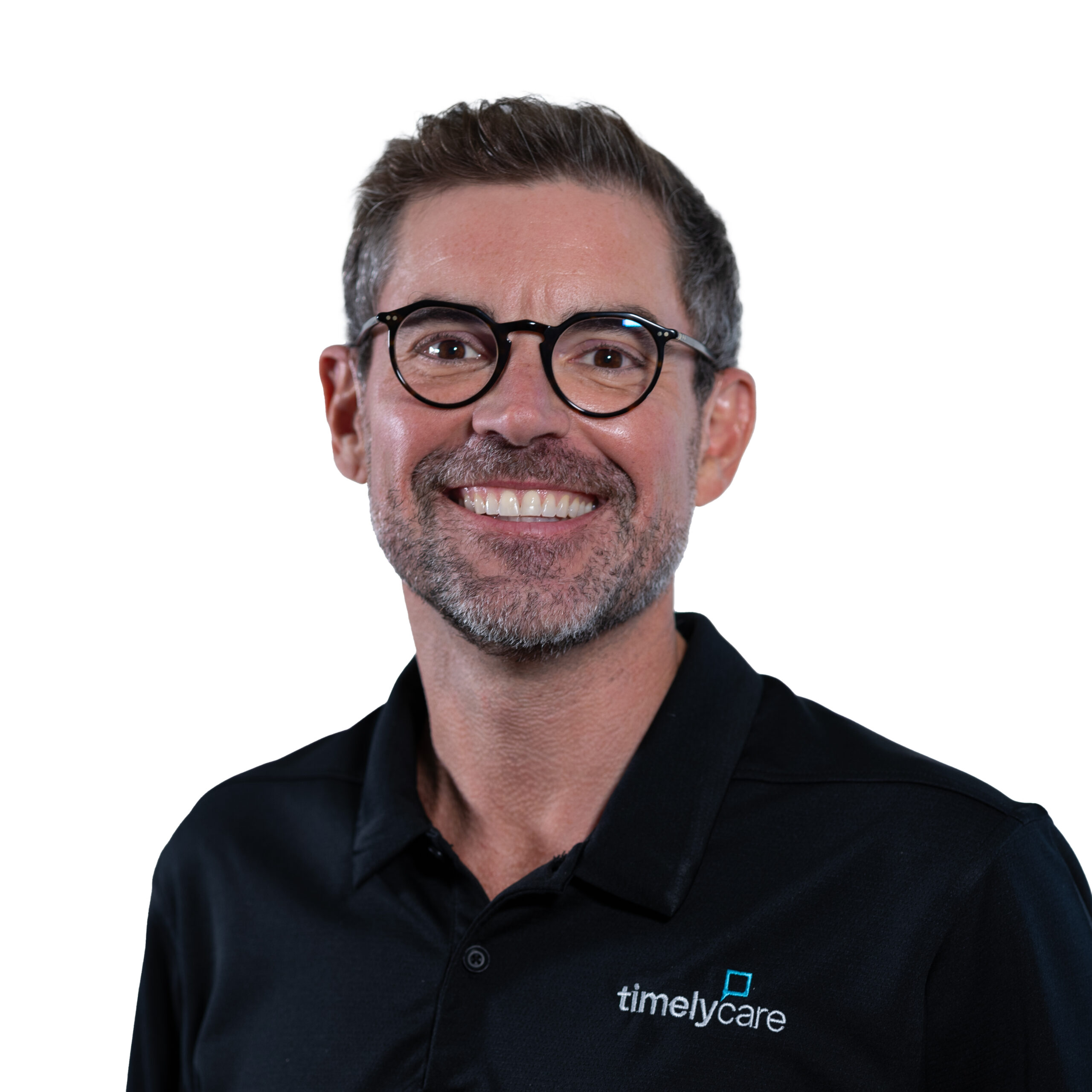Table of Contents
The Hope Center defines students’ basic needs as access to nutritious and sufficient food; safe, secure, and adequate housing; healthcare for mental and physical well-being; affordable technology and transportation; resources for personal hygiene; and childcare and related needs. When there is an ecosystem in place to ensure that students’ basic needs are met, students can meet their academic potential. But basic needs insecurity means students don’t have what they need to succeed.
To further the conversation on basic needs support for college students, TimelyCare hosted a session of the Gen Ztressed webinar series on Basic Needs Insecurity and Your Students.
Rates of basic needs insecurity
The Hope Center #RealCollege report revealed the types of institutions and demographics with the highest rates of basic needs insecurity:
- 67% of students at HBCUs
- 62% of students at urban two-year colleges
- 57% of students at rural four-year colleges
TimelyCare’s research found that three out of four community college students reported a lack of basic needs caused them emotional distress and/or anxiety. While medical and mental health care were the top two most pressing needs cited by the students surveyed, lack of time and being unsure where to go were the most often-cited barriers to accessing care.
Basic needs insecurity and college students
In TimelyCare’s Gen Ztressed webinar series, higher education student affairs leaders shared strategies and resources to use to support the basic needs of college students. The panel discussion focused on how institutions can break down common barriers to help students stay safe, focused, and on track to graduate.
Attendees from higher education institutions to the session were asked three questions about basic needs support for their students.
1. How equipped do you feel your campus is to care for the basic needs insecurities of your students?
2. In the past 12 months, what percent of your students do you think experienced emotional distress, stress, and/or anxiety due to lack of basic needs?
3. What do you think are your students’ biggest barriers to accessing the medical or mental health care that they need?
The top responses were:
Over 80% of the higher education attendees felt that their campuses had room to grow the basic needs support for their students. Approximately three out of four of those surveyed thought that between 41-80% of their students experienced some amount of stress and/or anxiety due to lack of basic needs support. This aligns with TimelyCare’s research on community college students and falls in line with the Hope Center’s research on how basic needs insecurity impacts students at different types of institutions.
Students from five University of California campuses echoed that transportation and not being able to pay are common barriers to basic needs. And an Active Minds student survey concluded that students not knowing how to access needed mental health services is a common problem as well.
Basic needs means more than food and housing
The study of University of California students also revealed that students define basic needs as more than food insecurity and housing insecurity. Lack of financial aid and financial aid guidance were also noted as barriers to basic needs. Students also indicated that they believe basic needs are the responsibility of students and the institution. TimelyCare’s Gen Ztressed panel of higher education experts discussed this topic in more detail.
We’re past the point where basic needs is only food and housing, said Iris Aguilar, senior director of health equity at the Foundation for California Community Colleges (FCCC). Basic needs include access to technology; healthcare, including mental health; transportation, jobs, and networking.
“Schools are providing access to social capital. We don’t want students to just come to school. We want them to thrive. We want to empower them”
Aguilar noted that it’s important to center the basic needs conversation around equity vs. equality.
“There will be students who need more. We’re talking about students who may not have access to public benefits like Healthfresh or SNAP. We’re talking about undocumented students.
“We want things to be equal, but that’s not reality. There are inequities. The intersectionality of all of this is that students have different needs.”
The stigma associated with basic needs can’t be ignored, said Aguilar. In most cases, the resources exist, but students can’t access what they need. Confusing applications and lack of awareness are common barriers. With recent news around DACA, Aguilar also talked about how important it is to communicate with students about the changes to that program.
“Equity means that we’re creating resources and solutions and breaking down barriers to ensure that students have access to resources,” said Aguilar.
Discover how telehealth can support basic needs
Peer-to-peer support for basic needs
To help break down the barrier of confusing applications and lack of awareness of how to access needed resources, students are starting to take matters into their own hands.
“We see students getting creative,” said Aguilar, who noted that she sees students offering peer-to-peer support, posting on social media about basic needs and public benefits, and hosting virtual gatherings for other students that need help accessing basic needs resources.
Another Gen Ztressed panelist, Dr. Emily Stone, dean of counseling and student services at Diablo Valley College (DVC), discussed the FCCC’s student ambassador program that empowers students to use on-campus advocacy efforts to build awareness of important student resources. One of these student ambassadors helped lead an initiative to expand access to medical and mental health resources through TimelyCare for DVC students. The student was provided with support from leadership at the college to “exercise leadership and develop leadership skills to make something significant happen” for the campus, which was to implement DVC’s telehealth platform with TimelyCare.
The DVC campus also provides opportunities for students to share their experiences through different events and activities, said Dr. Stone. One example is a “listening circle” that allows students to speak, share, and be present to hear what students are saying. It’s in this type of community with students that DVC leadership has an opportunity to hear what students need, which helps inform decisions about student programming.
Leveraging peer networks for supporting students has many considerable benefits, but, as Chelsea Waite notes in EdSurge, schools considering peer-to-peer models should recognize that peers may not always be best positioned to tackle complex challenges on behalf of their fellow students. For particularly complex student challenges, peer supports will need to remain supplements, not replacements, to professional staff. This is one of the ways that TimelyCare’s basic needs support plays an important role in ensuring that students get connected to the community and campus resources they need to help them thrive.
Connecting college students to the resources they need
For Dr. Leroy Durant, vice president for student development and services at Claflin University, the majority of the student population is eligible for Pell grants. Claflin, an HBCU in rural South Carolina, found itself supporting insecure students’ basic needs during the pandemic.
Students didn’t have the technology they needed for remote learning. And many students didn’t have internet access to complete assignments at home. Students would sit in the parking lots of local restaurants to get coursework completed.
“You assume that students probably have [technology] they use, whether it was an iPad or laptop or something like that,” said Dr. Durant. “That was not the case. The majority of our students did not have that. We had to find a way to get that to them and let them keep it so they can move forward.”
He also said that campus leadership discovered how much students rely on the school’s meal plan for food security. Claflin created a hotline to hear what students needed, and the school made investments to help meet those challenges.
“To hear the kinds of things the students deal with, it really hits me that I have to find ways to provide services that help students to be successful, get an education, and improve their quality of life,” said Dr. Jenkins.
In addition to technology and food, healthcare was another investment that Claflin made during the pandemic. By partnering with TimelyCare, Claflin provided 24/7/365 medical and mental health care for students. “I knew that, for some of our students, this is the only healthcare they get,” said Dr. Jenkins.
How basic needs support impact college campuses
While the rate of basic needs insecurity may be higher at certain types of higher education institutions, there are students at all types of institutions who struggle with basic needs insecurity. If you’re looking at how to best equip your campus with the resources it needs to support all students, watch the latest session of the Gen Ztressed webinar series, Basic Needs Insecurity and Your Students.
While food security and housing security are significant basic needs to cover, what students need to be successful goes beyond just these necessities. Technology, healthcare, and transportation can keep students from being able to achieve academic success. Barriers like these remain for many students. And your campus must make sure steps are taken to help students have basic needs security.
Listening to the needs of students, providing opportunities for peer-to-peer support, and offering support services to connect students with resources are all ways to ensure student success. When students have the resources they need to be able to focus on academics, retention and graduation rates increase.
“To be successful academically and in the classroom, you need your fundamental needs met, and that’s what basic needs are,” said Dr. Stone.
Basic needs support from TimelyCare can help students get connected with assistance programs (i.e. campus food pantries, student outreach and nonprofit programs, and transportation), determine the student’s eligibility, and support students through any necessary enrollment. To learn more about basic needs support and how it can help your students thrive, contact TimelyCare.






